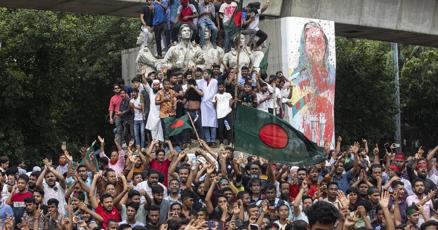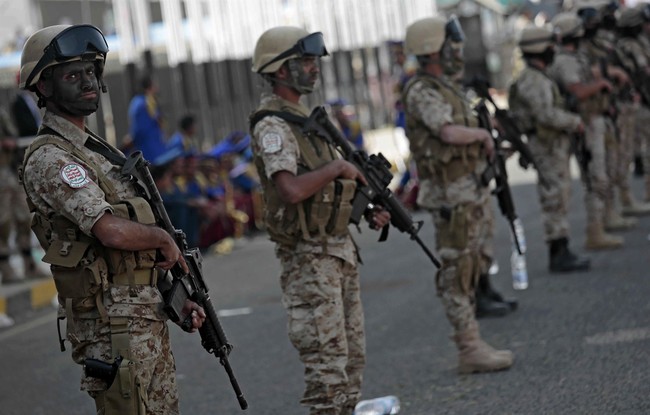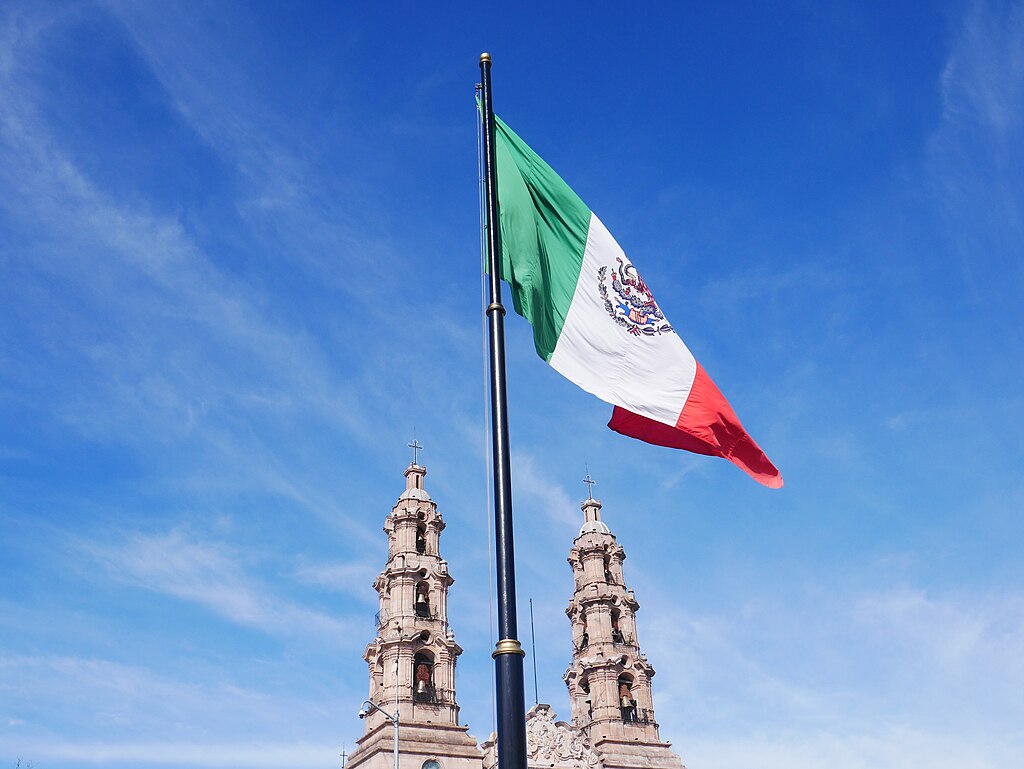Bangladesh in Turmoil: Nobel Laureate to Lead Interim Government
A mass uprising led by students ousted Prime Minister Sheikh Hasina, leading to the appointment of Muhammad Yunus as the head of an interim government.
Published August 07, 2024 - 15:08pm

Image recovered from thestar.com
Bangladesh is undergoing a significant political shift after weeks of intense protests led by students culminated in the abrupt resignation and flight of Prime Minister Sheikh Hasina. Nobel laureate Muhammad Yunus is set to head an interim government in an effort to restore stability to the nation. The move comes following widespread dissatisfaction and violent demonstrations against Hasina's rule, which included the dismantling of her government and demands for a new administration.
The announcement of Yunus's appointment was made by Joynal Abedin, the press secretary to President Mohammed Shahabuddin. The decision followed extensive discussions involving student leaders, military chiefs, civil society members, and business leaders. Reports indicate that Yunus, who is currently in Paris, has agreed to take on this role, and he is expected to return to Bangladesh shortly to assume his duties.
The resignation of Sheikh Hasina marks a dramatic end to her long tenure in office, where she ruled with an increasingly authoritarian grip. Hasina, daughter of Bangladesh's founding leader Sheikh Mujibur Rahman, had been a dominant figure in the country's political landscape, winning multiple elections amid accusations of electoral fraud and corruption. Her departure leaves behind a power vacuum and significant uncertainty about Bangladesh's future.
In a break from the norm, the new interim government led by Yunus is expected to be composed of members selected in consultation with various political parties and stakeholders. This move is seen as an attempt to create a more inclusive and representative government that can address the demands of protesters and the broader population. The formation of this government comes amid calls for a complete overhaul of the political system, driven by discontent over alleged corruption and lack of transparency in Hasina's administration.
The student-led protests began in response to a controversial quota system for government jobs, which was viewed as biased and unfair. The movement quickly gained momentum, evolving into a broader push for governmental reform and the end of Hasina's rule. Violence escalated as security forces clashed with demonstrators, resulting in significant casualties and widespread unrest. According to reports, at least 135 people have died in the recent violence, and hundreds more have been injured.
Throughout the protests, demands for the release of opposition leader Khaleda Zia, who had been under house arrest on corruption charges, were also made. President Shahabuddin has since ordered her release, a move that is seen as a strategic effort to calm tensions and foster a more conciliatory political environment. Zia, a longtime rival of Hasina, is expected to play a role in the transitional period, adding another layer of complexity to the unfolding situation.
The military's role in this transitional period has been a point of contention. While students and other civil society leaders have voiced strong opposition to any military-backed government, the military has been actively involved in discussions about the formation of the interim administration. Military chief Gen. Waker-uz-Zaman has stated that the armed forces will support the new government and investigate the recent violence, hoping to ensure accountability and justice for those affected.
Amid the political turmoil, fears have been raised about the security of Bangladesh's minorities, particularly the Hindu community, which has historically been targeted during periods of political instability. Reports of attacks on Hindu leaders and places of worship have emerged, though they remain unconfirmed. Leaders from across the political spectrum, including opposition parties and student movements, have called for the protection of minority groups and for restraint among their supporters.
As the country moves towards establishing a new government, the international community has been closely monitoring the situation. The European Union and the United Nations have expressed concerns about the violence and have emphasized the need for an inclusive and transparent transition process. They have called on Bangladeshi leaders to ensure that the process aligns with international standards and includes the meaningful participation of all citizens.
In the aftermath of Hasina's resignation, the streets of Dhaka have seen a mix of jubilation and caution. While many celebrate the end of what they view as an oppressive regime, there is widespread acknowledgment that the road ahead will be challenging. The incoming interim government faces the daunting task of navigating a deeply divided political landscape, addressing the root causes of the protests, and laying the groundwork for new elections.
As Muhammad Yunus prepares to take on his new role, the hopes of many Bangladeshis rest on his ability to steer the country towards a more democratic and just future. Known internationally for his work in microfinance and poverty alleviation, Yunus brings a reputation for integrity and innovation to the position. However, the challenges he faces are immense, and the success of the interim government will depend on its ability to address the underlying issues that have led to the current crisis.
In conclusion, Bangladesh stands at a critical juncture. The ousting of Sheikh Hasina and the appointment of Muhammad Yunus as the head of an interim government represent a pivotal moment in the nation's history. The coming weeks and months will be crucial in determining whether this transition can lead to lasting change and stability in Bangladesh, or if the country will continue to grapple with political turmoil and unrest.








